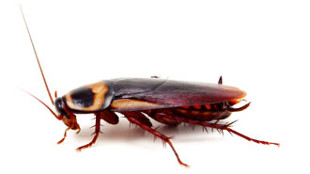 WIKIMEDIA, EPAThe microbiome isn’t just important for digestion and immunity; it may also have a hand in social relationships among animals. At least that seems to be the case in German cockroaches, according to a study published this week (December 7) in PNAS, in which researchers showed that volatile compounds produced by bacterial fermentation attracts the insects to aggregate. “Only now are we beginning to appreciate the involvement of microbes in animal communication and behavioral systems,” study coauthor Coby Schal, a professor of entomology at North Carolina State University, told Smithsonian. “This is one of the cleanest examples of this type of thing.”
WIKIMEDIA, EPAThe microbiome isn’t just important for digestion and immunity; it may also have a hand in social relationships among animals. At least that seems to be the case in German cockroaches, according to a study published this week (December 7) in PNAS, in which researchers showed that volatile compounds produced by bacterial fermentation attracts the insects to aggregate. “Only now are we beginning to appreciate the involvement of microbes in animal communication and behavioral systems,” study coauthor Coby Schal, a professor of entomology at North Carolina State University, told Smithsonian. “This is one of the cleanest examples of this type of thing.”
Researchers have known since the 1970s that cockroaches are attracted to their own poop. Schal and his group determined that even cockroaches that were raised in sterile conditions so that they’d carry no bacteria in their guts are attracted to microbe-rich feces. The sterile excrement lacked volatile fatty acids called carboxylic acids, which may influence cockroach behavior. When the researchers created a synthetic mixture of six common carboxylic acids, the insects gathered ’round. “So we conclude that it’s the bacteria rather than the cockroach itself that are involved in producing this signal,” Schal told Smithsonian.
And Schal suspects that cockroaches are not unusual in this regard. Indeed, previous work has suggested a similar role for the bacteria in hyenas’ anal scent glands, where the microbes ...






















